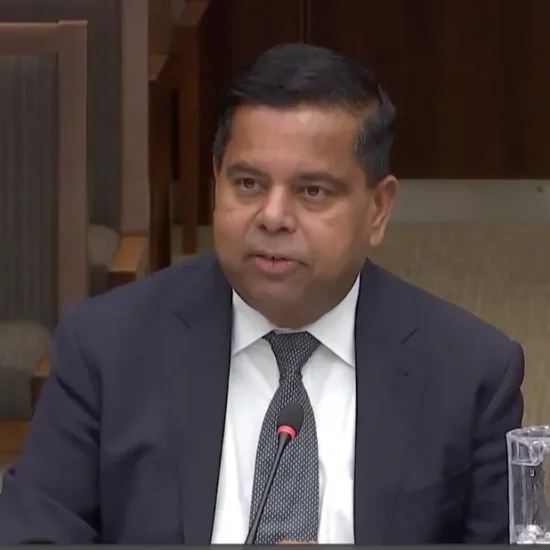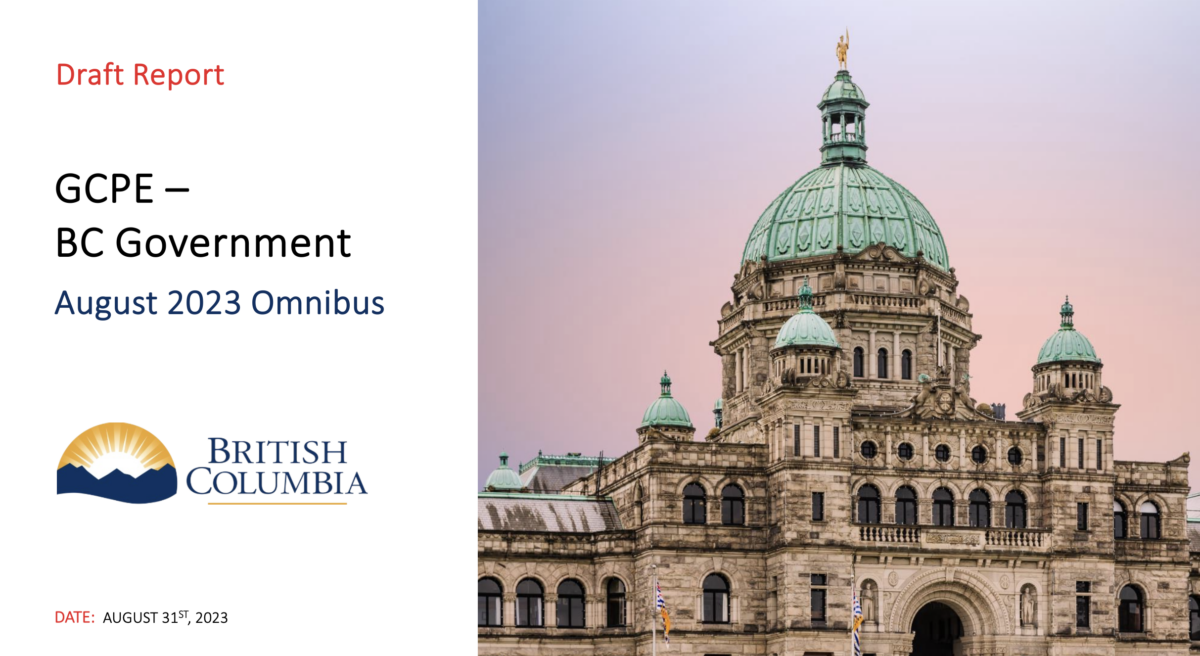
Bob Mackin
British Columbia is going in the wrong direction under the NDP, government cannot be trusted and affordability is the top issue for the next decade, according to an opinion poll commissioned last August by Government Communications and Public Engagement (GCPE).
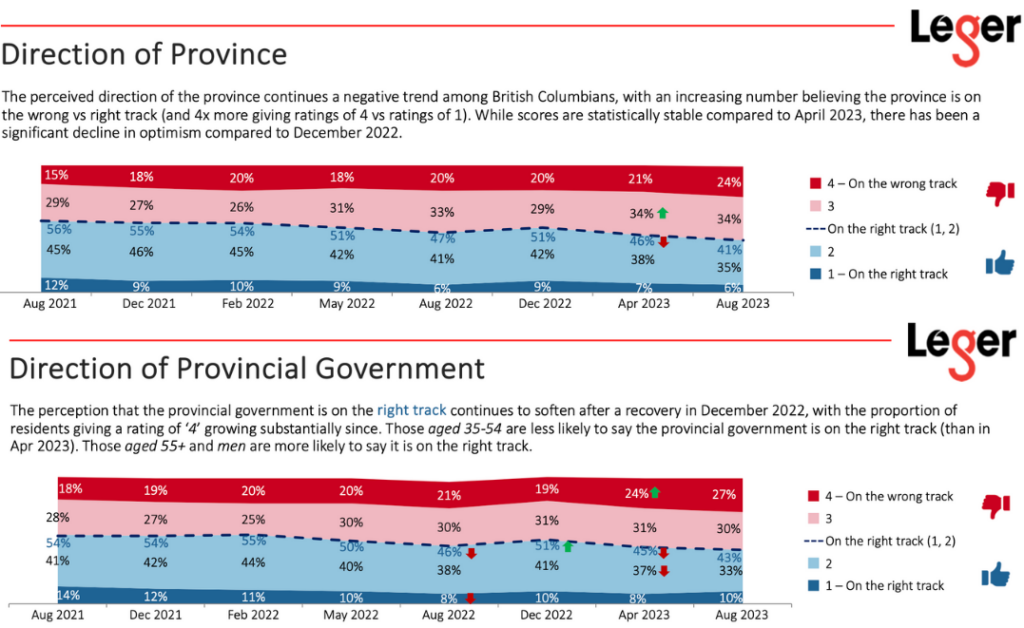
B.C. and NDP government on the wrong track, majority of respondents said (Leger/GCPE)
“British Columbians overwhelmingly rank fighting rising prices/cost of living as the most important goal for Canada over the next 10 years,” said the omnibus survey by Leger Marketing Alberta Inc. for GCPE. “Ensuring strong economic growth is of secondary importance.”
Leger gauged the opinions of 2,006 British Columbians, aged 18 and up, between July 27 and Aug. 10, 2023 and had a margin of error of plus/minus 2.19%. The 133-page report, released under the freedom of information law, said most respondents continue to feel the government is failing to make life more affordable. They said B.C. households typically spend around $3,500 a month on major expenses, mostly on housing and shelter, and some have little or nothing to spare. “Nearly half of younger residents do not think they could cover an unexpected $500 expense,” Leger reported.
Respondents gave Premier David Eby’s government the best ratings for its handling of reconciliation with Indigenous peoples, education, and supporting new and traditional economic sectors. The lowest ratings were for housing, making life more affordable and mental health/addiction. In fact, most residents gave negative ratings for the government’s job on housing and were more than twice as likely to give a negative rating about healthcare.
Younger residents and those renting or living with family are facing housing insecurity more than others. Respondents supported measures such as cracking down on criminal activity and money laundering, funding new co-op and other non-market investment, and supporting those with the greatest need.
Respondents blamed the shortage of doctors for the province’s healthcare problems and tended to rate mental health and addiction programs as “very poor.”
“British Columbians usually cannot think of any actions the B.C. government has taken to improve access to health care,” said Leger’s summary.
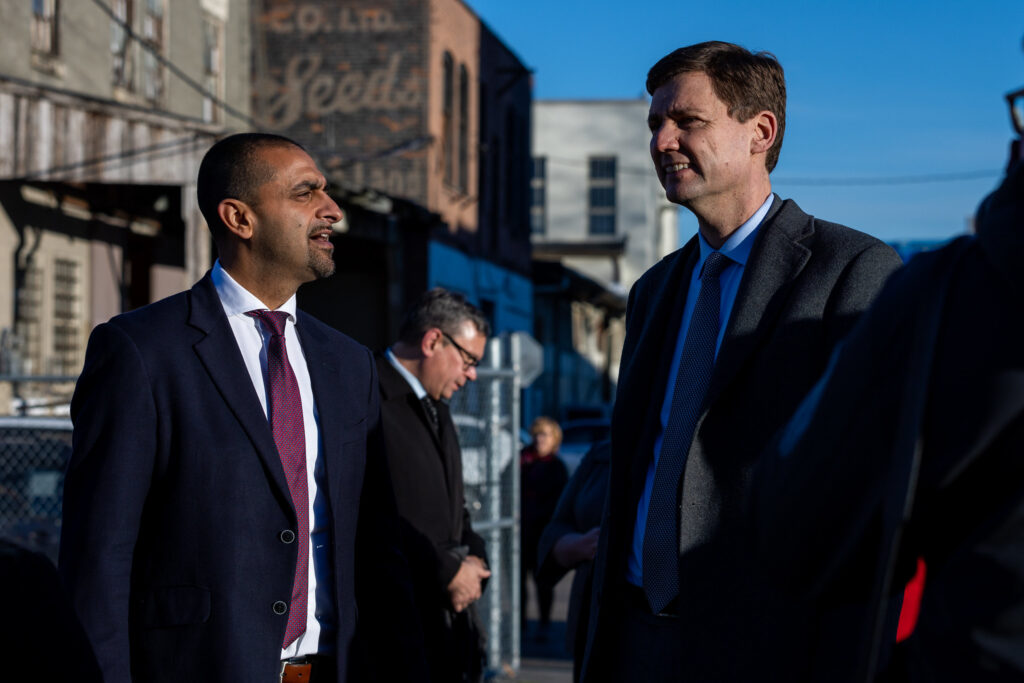
Ravi Kahlon (left) and David Eby in December 2022 (Flickr/BCGov)
Other findings:
- Trust in government and public organizations is low. The majority do not trust their municipality, province, and federal government to act in the public interest at least most of the time;
- Nearly half of those living in Surrey disagree with the transition from RCMP policing to a municipal police force, and nearly one-third strongly disagree (compared to 12% strongly agree). One-fifth remain unsure. Those aged 18-34 and men are more likely to agree with the transition;
- Very few British Columbians say the province has become safer over the past year, while over half say it has become less safe. Those living in the interior, women, and those aged 55-plus are more likely to say the province is less safe than a year ago;
- British Columbians generally feel the traditional resource sector remains important with few thinking it will lose importance. About half think it will be ‘very’ important to B.C.’s future economy. Residents have largely positive views on the B.C. mining sector and see it as a key driver of future growth, but also feel it poses risks to the environment (e.g. watershed, fish habitat);
- The majority of British Columbians agree that the Earth is warming because of human activity, vaccines have been vital to combating COVID-19, and you cannot be too careful dealing with people. They are split on whether most people can be trusted and are more likely to disagree that B.C. would benefit from less emphasis on diversity and tolerance;
- Experiencing discrimination or unfair treatment in B.C. is not uncommon in B.C. and is typically related to ethnicity or age. In the province, nearly one-quarter experienced discrimination or unfair treatment over the past few months.
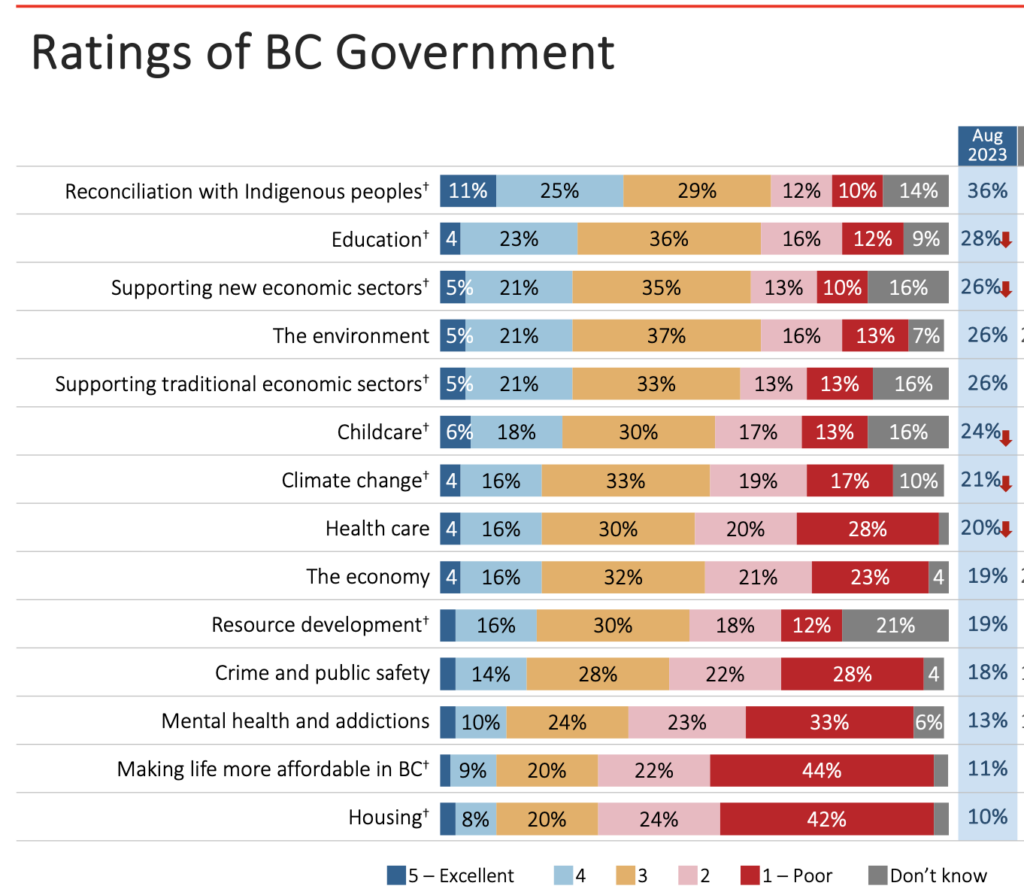
Ratings for B.C. NDP government performance (Leger/GCPE)
A plurality of respondents (27%) rated “news/media” as the top source for information about B.C. government work, followed TV news (16%) and online/internet (13%).
More respondents said they rely on social media (6%), online news and government website (5% each) than CBC TV/radio/online and word of mouth (4% each) and Global News (3%).
Respondents under 55 “are generally less informed about what the province is doing, and twice as likely to select None/Don’t know/Refused when asked where they get most of their information (compared to those 55-plus).”
At the time of the survey, Marie Della Mattia was the deputy minister of government communications. She resigned in February in order to manage the NDP’s re-election campaign. Eby has since announced the $2 billion B.C. Builds strategy to increase middle class housing and programs to recruit doctors and match them with patients. However, the government faces ongoing controversies around the decriminalization of drugs experiment and public safety. Despite that, the NDP is favoured to remain in power due to a split on the centre-right.
Leger, in partnership with lobbying firm Global Public Affairs, released a report on April 4 based on a late-March poll of 1,002 people. It found 43% of decided voters supported Eby, while John Rustad’s Conservative Party of B.C. led Kevin Falcon’s BC United 26% to 18%.
The poll said housing affordability has remained the top issue since May 2016, “followed by health care and inflation/rising interest rates.”
“Notably, healthcare saw a 15% increase (from 40% to 55%) in total importance from September 2023 to March 2024 for those in the 55+ age group.”
B.C. is scheduled to go to the polls on Oct. 19. Ninety-three seats, six more than in 2020, are up for grabs in this election.
The NDP currently holds a 55-seat majority, followed by BC United with 26.
The Greens and Conservatives hold two seats each. There are also two independents sitting in the Legislature, both former NDP MLAs.
Support theBreaker.news for as low as $2 a month on Patreon. Find out how. Click here.






